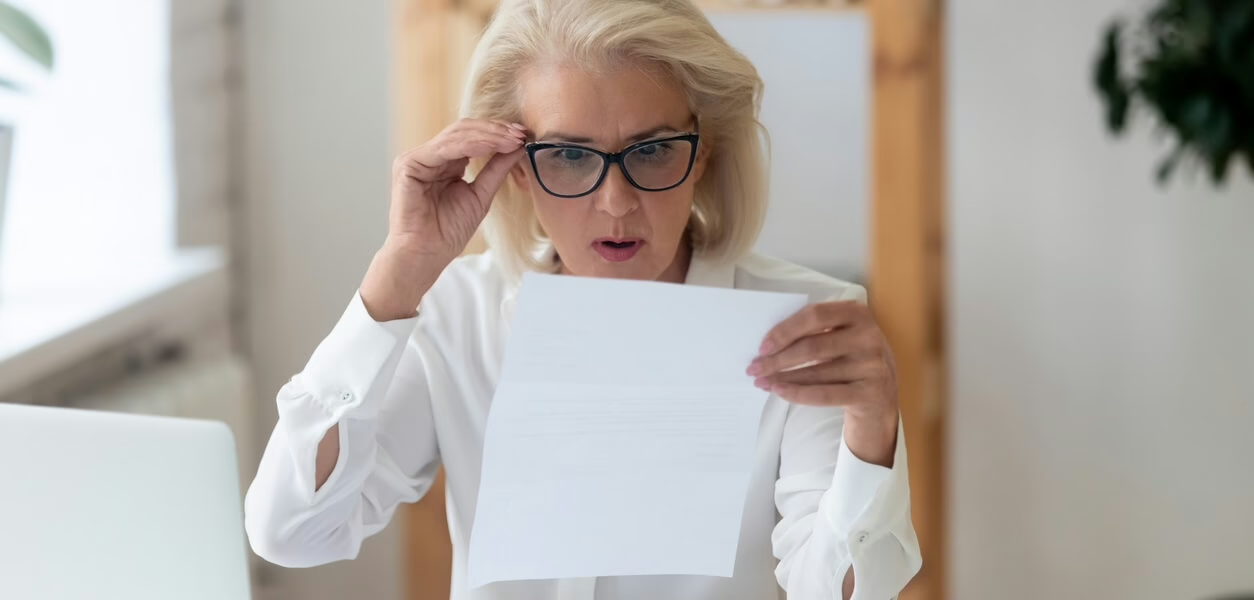
Last week we defined the Assets Test and rules which are applied to your assets for Age Pension entitlement.
This week we look more closely at the Income Test, one of the three aspects by which an Age Pension entitlement will be assessed.
Put simply, Centrelink defines income as your total earnings across a range of sources which include (but are not confined to) the following:
- *Financial investments (including shares, term deposits, managed funds)
- *Income on super fund balances
- *Income stream earnings (often from account-based pensions)
- Wages or salary earnings
- Rental income
- Sole trader or partnership income
- Dividends or distributions from private trusts or private companies
- Overseas earnings (this includes non-Australian pensions)
Centrelink views the above income earned in one of two ways – either deemed or non-deemed. The items which are deemed are marked with an asterisk(*).
Income is ‘deemed’ by applying the current Centrelink deeming rate. These rates are 0.25% on financial assets up to $53,600 (for singles), $89,000 (for couples) and 2.25% for financial assets above these amounts.
You may actually earn more or less than this deemed amount. But that is of no concern to Centrelink – it is the deemed amount that is assessed as part of your pension entitlement.
What are the thresholds?
To be eligible for a full Age Pension:
- Singles are entitled to a full age pension if their income is equal to or less than $180 per fortnight or $4680 per year
- Couples are entitled to a full age pension if their income is equal to or less than $320 per fortnight or $8320 per year
For every $1 your income over these limits your pension will reduce by $0.50 until it cuts out. This does not include the application of the Pension Work Bonus which is explained separately in the Jargonbuster.
Upper income limits
Singles will no longer receive any Pension if their income exceeds $2,115 per fortnight, or $54,990 per year
Couples will no longer receive any Pension if their income exceeds $3,237.20 per fortnight, or $84,167 per year
The devil is in the detail
Apart from needing to meet residency requirements, the income test is one of two tests you need to meet in order to receive a full or part Age Pension. Centrelink looks at both aspects of your financial situation (Income and assets) and the lower entitlement is the one which determines your Age Pension eligibility and amount. So if you have high assets, but income well below the threshold, the assets test will apply. If you have assets within the threshold, but income that means a reduced or no pension, then this outcome will be the one that counts.
Commonwealth Seniors Health Card (CSHC)
Should you not qualify for an Age Pension, you may still qualify for a Commonwealth Seniors Health Card (CSHC). The rules are different for the CSHC. Only your income is assessed. The threshold is higher. And deeming rates only apply to money in an income stream, not your super balance. With financial investments, deeming does not apply – income reported in your tax return is the guiding factor.
It’s complicated
As Jeremy Duffield points out in his recent article “Are we the luck country?” it is a complicated system and there is nothing easy or necessarily intuitive about applying both the assets and income rules to your financial assets and earnings, particularly when some assets are deemed and others are not. That is why Retirement Essentials offers an easy and efficient free eligibility calculator which takes into account all the Age Pension and CSHC rules and is always completely up to date on any changes to pension rates, deeming rates and income and asset thresholds.
You can access this free calculator at any time – and even if you already receive a full or part Age Pension, you can recheck your entitlements as often as you like, as the value of your assets either depreciates or increases and your income fluctuates.
And if you need extra support on either Age Pension rules and entitlement you can book a consultation with our customer service team. Or for more complex financial concerns, you can book an appointment with our experienced financial advisers.






My father is 85 this year and is self funded.He closed his super account at christmas this year due to paying just over 3k a year in fees and having to take more than he needs(min.account based pension 7% currently 3.5% because of covid) and making nothing due to having it all tied up in cash/term deposit.It was going backwards even after his interest was added to his account.He does not like taking risks.Now that he has put it into the bank(NO FEES) i have worked out that using deeming rate on his balance,centrelink will now say that he earns approx 25k a year in interest.My question to you is will he have to pay tax on the excess above $18,200(tax free threshhold)as he does not get no where near this in interest earnings.In my opinion he should not have to as in reality he is only going to get about 6-7k a year from bank interest.Hope you can help me with this one.
Cheers………..
Hi Steve. Thanks for your comment. The deeming rates can be quite unfair at present as very few people with money in their bank account are able to earn close to what Centrelink “deems” they are earning. Deeming is a Centrelink issue. The tax which is concerned with what you actually earn not what Centrelink deems you earn.
Thanks james.This information will make my father happy.He was a little bit concerned about this
I am in the same position. Deeming rate at 2.25% is way out of line with bank rates. The government should set up a fund for SMSFunds that pays the equivalent of this rate..
If nothing changes before JUNE I will be closing down my SMSF.
My partner is eligible for an aged pension june this year. We have a muscle car and american muscle truck which are our every day use as well as a caravan. We have a mortgage on our 10 acre property and have an off set account to the value 1/4 over the home loan amount. Hos health is deteriorating.I still have 10 years before I retire. I was wondering if there is any chance he will get the aged pension.
Hi Marion, if you or anyone else reading would like to talk about your situation in detail, we offer 30min consultations at a cost of $75. We can clarify how Centrelink will assess you specifically and help guide you on any related matters that might impact your Age Pension. If you wish to proceed please CLICK HERE to book the best suitable time available.
Hi Steve
I am retired and have no other income other than from the super fund from Unisuper. Can I consult you to check if I am eligible for an age pension? Pl email me. Regards
Hi Dr Majumdar, we’ll be happy to book a consultation with you to review your eligibility. As you requested I will send you an email separate to this comment with the details for you to book.
I notice sole trader or partnership income. We have a company I earn an income from the company. How does the income to the company be viewed in the assets test. Is it the income to the company or the salary I take.
Hi Brenda, this can be a tricky situation, it would be best to discuss it via one of our consultations so that we can properly understand your situation and how Centrelink will assess you specifically. We offer 30min consultations at a cost of $75. If you wish to proceed please CLICK HERE to book the best suitable time available.
Income test, is that based on the year past or expected for the year to come. I am about to retire have an income now in excess of the limits but on day of retirement my super generated income is less than upper limits.
When can I claim the age pension, on retirement or the Financial Year after
Hi Paul, great question! Centrelink assess your income as of the day you apply for the pension moving forward. Therefore you can earn a salary over the maximum threshold but then retire and apply for the Age Pension. You will not be penalised for the income you used to earn.
Not so sure if this is correct Steve. I was made redundant 4 months before retirement date. Declared everything to Centerlink and started to receive aged pension at retirement. All good except that my employer decided to pay me a bonus for my last year of full employment ( 2020 ). Centerlink have assessed this as income for this year (2021/22 ) and as such my work bonus is being stripped out so I won’t actually now qualify to earn / accrue any work bonus credit until the end of 2022 and it will be sometime in 2023 before I have the full credit assuming I don’t work in the meantime – which I won’t now as I’ won’t get any tax relief. How is it ok for Centerlink to consider my 2020 bonus as income for 2022 ? Should it not be classed as additional asset $’s ? I didn’t earn it in 2021/22.
Hi Bruce, thank you for raising your concern. Based on how you have explained your situation Centrelink have assessed you correctly.
Bonuses are considered assessable income and are assessed from the day they are received for as long as the employment period was that the payment was earnt. As you earnt the bonus for a year’s worth of work, Centrelink assess the bonus as income for one year from the day it was received.
It is tricky though because not all payouts at retirement are considered assessable income. Payouts of accrued leave are one such exemption. So you may hear of people who got a lump sum upon retiring without any impact to their pension meanwhile others like yourself are impacted.
What is personal assets
Hi Andrew, I am presuming that by personal assets you mean personal contents as personal assets would simply be any asset that you own. Personal Contents refers to things like clothing, furniture, appliances etc. that you own and when valuing these items it is important to do so under the guise of their second hand/garage sale value, not their insured or presumed replacement value.